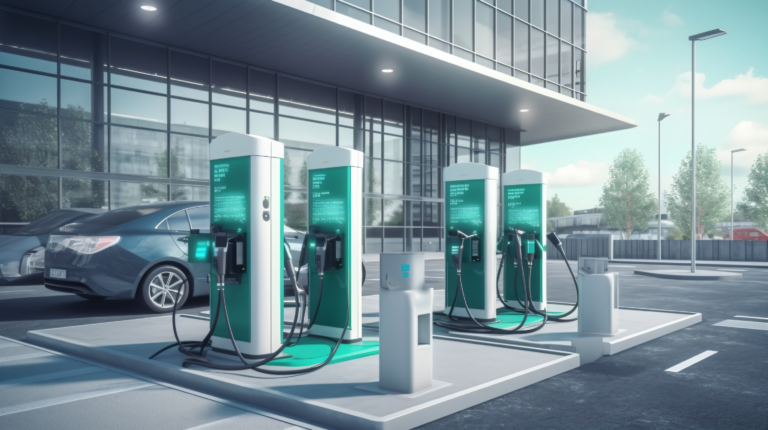In recent years, the global focus on sustainable development and the transition to renewable energy has propelled the growth of the new energy industry. Whether in wind power, solar energy, or electric vehicles, precision fasteners play a critical role as essential components, ensuring the stability and reliability of various devices and systems. This article explores the application of precision fasteners in the new energy sector and their future development potential.
Ⅰ. Characteristics of Precision Fasteners
Precision fasteners are mechanical connectors with high precision, strength, and durability. Their primary characteristics include:
- High Precision: Manufactured through advanced processing technologies and stringent quality controls, precision fasteners achieve micron-level tolerances, ensuring stable and reliable assembly.
- High Strength: Made from premium materials such as high-strength steel, stainless steel, and titanium alloys, they can withstand significant mechanical loads and dynamic stresses, even in extreme environments.
- Corrosion Resistance: Designed to resist corrosion, these fasteners are suitable for environments with high humidity, salinity, or other corrosive factors.
- Customization: Tailored to meet specific client requirements, precision fasteners can adapt to diverse application scenarios.
Ⅱ. Main Applications of Precision Fasteners in the New Energy Sector
- Wind Power Equipment
Wind power systems often operate in harsh natural conditions, such as offshore wind farms or mountainous areas. Critical components like turbine blades, main shafts, gearboxes, and towers rely on high-strength precision fasteners for secure connections. Specific applications include:
- Blade Connections: Turbine blades endure complex forces. Precision fasteners ensure stability and fatigue resistance in high-wind environments.
- Tower Assembly: The towering structures consist of multiple segments, and precision fasteners provide reliable connections to minimize vibration and structural deformation.
- Solar Photovoltaic Systems
Solar photovoltaic (PV) systems are deployed in various settings, from ground-mounted power stations to distributed rooftop installations, each requiring specific fastener solutions:
- Component Frames: Frames holding solar modules must endure prolonged exposure to sunlight and rain. Precision fasteners with high UV resistance and corrosion protection are essential.
- Tracking Systems: Advanced solar farms employ tracking systems to maximize energy output. Precision fasteners ensure the flexibility and durability of these systems.
- Electric Vehicles (EVs)
The electric vehicle industry is among the fastest-growing sectors in renewable energy. Its core technologies—batteries, motors, and control systems—depend heavily on precision fasteners:
- Battery Assembly: Precision fasteners connect battery modules, ensuring stability and thermal management.
- Powertrain Systems: The assembly of motors and transmission systems requires high-strength, high-precision fasteners to handle high-speed vibrations and impacts.
- Body Structure: Lightweight design is a key trend in EVs. The use of aluminum and carbon fiber materials imposes higher technical demands on fasteners.
- Energy Storage Systems
Energy storage systems are crucial components of renewable energy ecosystems, including electrochemical (e.g., lithium-ion batteries) and mechanical (e.g., flywheel) storage systems. Precision fasteners in this context are used for:
- Battery Connections: Ensuring reliable connections between cells.
- Support Structures: Providing robust mechanical support to accommodate long-term operation.
III. Advantages of Precision Fasteners in the New Energy Sector
- Enhanced Equipment Reliability: High-precision and high-strength fasteners reduce the risk of loosening or failure, extending equipment service life.
- Adaptability to Diverse Needs: Custom designs allow precision fasteners to meet the unique operating conditions of renewable energy devices, such as extreme temperatures and corrosive environments.
- Support for Lightweight Design: By utilizing high-performance materials and optimized designs, precision fasteners contribute to reducing equipment weight and improving energy efficiency.
Ⅳ. Future Trends
As the new energy industry continues to evolve, the demand for precision fasteners will grow, alongside increasing performance expectations. Key trends include:
- Smart Fasteners: Integrated with sensors and communication functions, smart fasteners can enable real-time monitoring of connection status, improving operational safety and maintenance efficiency.
- Advanced Materials: Innovations in materials, such as composites and ultra-high-strength steels, will further enhance fastener performance.
- Green Manufacturing: The adoption of environmentally friendly production processes and materials will reduce carbon footprints, supporting the sustainable lifecycle of renewable energy equipment.
Ⅴ. Conclusion
As critical components in the renewable energy sector, precision fasteners significantly influence the performance and reliability of new energy equipment. With ongoing advancements in technology and expanding applications, precision fasteners will play an increasingly vital role in the industry, contributing to global energy transition and sustainable development.


